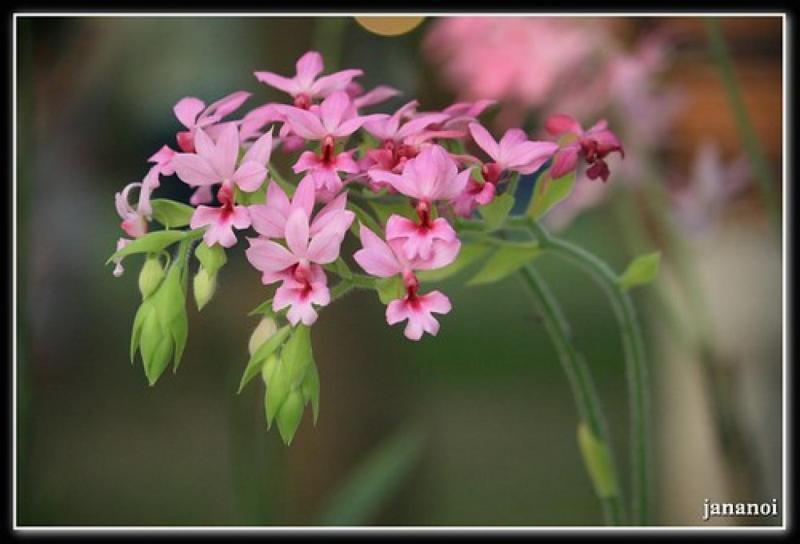Calanthe rubens
Also known as: The Reddish Calanthe or Preptanthe elmeri Calanthe rubens h.f. alba Calanthe elmeri Calanthe vestita var. fournieri in the subfamily: Epidendroideae
Native to: Chanthaburi - Thailand
General Information
The Reddish Calanthe is a medium sized sympodial warm to hot growing orchid belonging to the sub family Epidendroideae native to Thailand.
Plant Description
Sympodial. Grows to 50cm. Each new growth has numerous erect elliptic leaves that grow to 15-40cm long. Pseudobulbs grow to 4-15cm
Substrate(s)
- Fine
- Bark
- Charcoal
- Treefern
- Spaghnum Moss
- Perlite
Climate
Grows at low to high elevations. Rainfall ranges from 13mm to 498mm per day, heaviest in September and lightest in December. Humidity ranges from 71% to 88%, highest in September and lowest in January. Temperature ranges from 18C to 33C, highest in April (23C to 33C) and lowest in January (18C to 29C).
Fertiliser
These plants thrive on fertiliser, especially during periods of growth. Liquid fertiliser can be applied at the recommended strength, augmented with manure pellets or other quickly degradable fertiliser, applied away from the base of the plant, during periods of strong growth that occurs in the middle of the growth season.
Do not fertilise during the dormant period. Avoid using slow release fertiliser that breaks down for longer than 3 months, if using apply only after dormancy when new shoots have developed noticably, applied 4-5 pellets per cup (250ml) of media.
They can benefit from a high phosphate fertiliser leading up to flowering season, and by a high nitrogen fertiliser when new growth appears.
Use balanced fertiliser during Spring and Summer. Fertiliser can be applied heavily year round. Use a high Nitrogen fertiliser during Spring and Summer. Use a high Phosphorous fertiliser during Summer.Potting
Repotting is best done annually and in Spring.






















